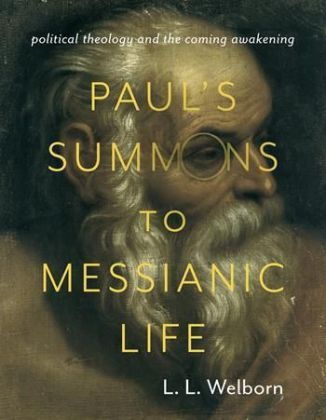Mehr lesen
Taubes, Badiou, Agamben, Zizek, Reinhard, and Santner have found in the Apostle Paul's emphasis on neighbor-love a positive paradigm for politics. By thoroughly reexamining Pauline eschatology, L. L. Welborn suggests that neighbor-love depends upon an orientation toward the messianic event, which Paul describes as the "now time" and which he imagines as "awakening." Welborn compares the Pauline dialectic of awakening to attempts by Hellenistic philosophers to rouse their contemporaries from moral lethargy and to the Marxist idea of class consciousness, emphasizing the apostle's radical spirit and moral relevance.
Zusammenfassung
Compares the Pauline dialectic of awakening to attempts by Hellenistic philosophers to rouse their contemporaries from moral lethargy and to the Marxist idea of class consciousness
Bericht
"Welborn's book is a courageous and welcome grappling with contemporary philosophers by a New Testament scholar who has expertise in the history, languages, and methodologies of reading Paul. Paul's Summons to Messianic Life reminds us of the relevance of New Testament scholarship to important contemporary debates on universalism, time, and even political action." Laura Nasrallah, Harvard Divinity School

